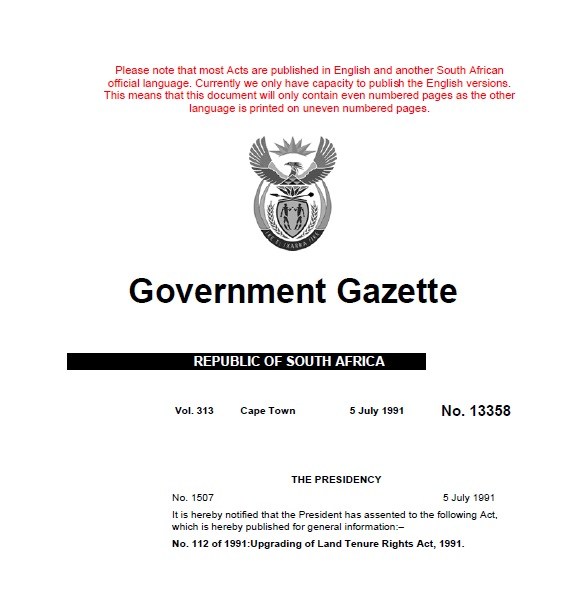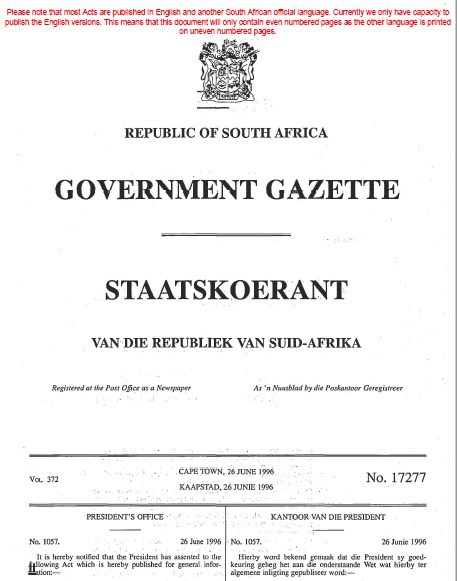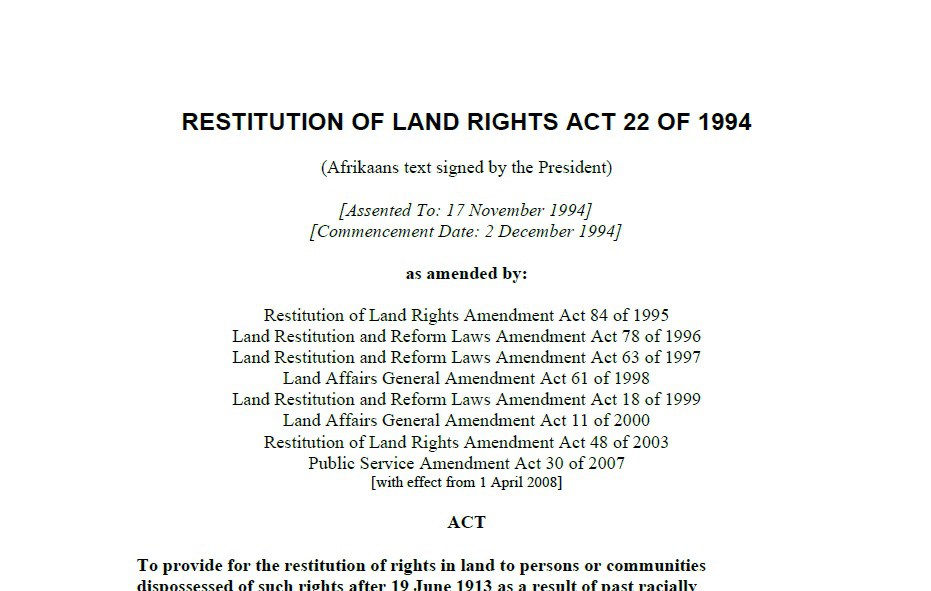Upgrading of Land Tenure Rights Amendment Act, 1991
To provide for the upgrading and conversion into ownership of certain rights granted in respect land; for the transfer of tribal land in full ownership to tribes; and for matters connected therewith.
(Afrikaans text signed by the State President.)
(Assented to 27 June 1991.)
BE IT ENACTED by the State President and the Parliament of the Republic of South Africa, as follows:






